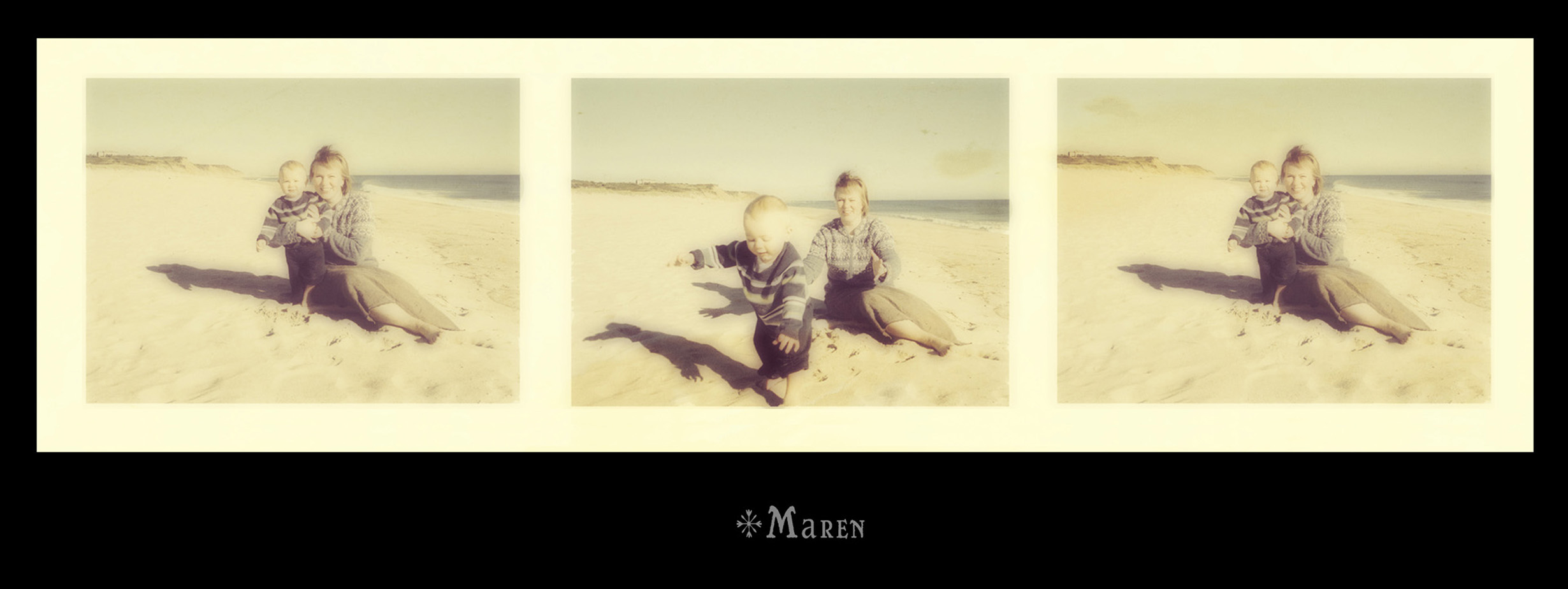Category: Guest Bloggers
-
Nothing to Apologize For (Part I)
[Times & Seasons welcomes the first in a pair of posts from Ralph Hancock this week, who previously guested with us in 2010] The recent unpleasantness at BYU’s Maxwell Institute has, the reader will have noticed, triggered much comment on the internet, including celebrations in some quarters over the supposed demise or at least eclipse…
-

Globetrotting, Mormon-Style
One of the things almost sure to be heard in testimony meeting after someone has traveled (whether it’s across the ocean or just to the next town over) is an expression of gratitude that “the Church is the same no matter where you go.” To a certain extent, it’s true. We all sing the same…
-
Single Moms and Adoption — Another Perspective
I have been fascinated by the idea of adoption for a long time. Growing up, I knew a few people who were adopted, and the idea of bringing home your baby from Korea or the Ukraine always seemed exotic to me. But my obsession really took off when I got my Patriarchal Blessing. After gushing…
-
Homeschooling Then and Now
As was mentioned in my introduction a week or so ago, my parents homeschooled us “back in the good old days when homeschooling was weird and subversive, not hip and progressive.” I’m now homeschooling my own children, and it’s interesting to note how the movement has evolved during the past 25 years. My adjectives describing…
-
Mormons Do Care about the Earth
Mormons do care about the earth. We care about preserving, protecting, and maintaining it. We care about the earth because 1) We love God, 2) We care about other people, and 3) We believe in the intrinsic value of the earth.
-
Charity Unbidden
Saturday night, several talks of the General Relief Society Broadcast addressed charity. I was left with the general impression that we should want to cultivate feelings of charity towards others, and that as we desire to have charity, we will gain it. I carry a sketch book and pencils with me. An adult only church…
-
Times & Seasons Welcomes Ben Spackman
Times and Seasons is pleased to welcome Ben Spackman as our latest guest blogger. Ben received his BA in Near Eastern Studies from BYU and an MA in Near Eastern Languages and Civilizations from the University of Chicago, focusing on philology and Semitic languages such as Arabic, Hebrew, and Aramaic. During his graduate summers, he…
-
The Tax Exemption and the Church’s Political Leanings
In light of the Church’s recent policy statement banning some Church authorities from endorsing candidates, and the speculation that the Church’s political neutrality derives from its desire to stay tax-exempt,[fn1] I thought I’d present a brief primer on the tax exemption.[fn2] The Revenue Act of 1894 probably represents the birth of the modern federal income…
-
In Praise of the Administrative Function of the Prophet
When I was just off my mission, President Hinckley announced that, in answer to a question about how to provide temples to smaller LDS communities, he had been inspired to construct smaller temples. There was a palpable sense of excitement at BYU, as we saw the prophet make what we regarded as a prophetic announcement.…
-
Summer 2011 Syllabus
Part of my job as a law professor is to model to students what a transactional attorney does. As part of that, I include in my syllabus a list of things media that they ought to consume in order to understand the world a business lawyer functions in. The list is not exhaustive, by any…
-
Times & Seasons Welcomes Sam Brunson
Times & Seasons is excited to introduce Sam Brunson as our latest guest blogger. Sam grew up in the suburbs of San Diego and served a Brazilian mission what seems like a millennium ago. He went to BYU as an undergrad and found that a freshman saxophone performance major made his eventual English major look…
-
Times & Seasons Welcomes Brad Strum
Times & Seasons is excited to introduce Brad Strum as a guest blogger. Brad lives and works in the DC area as an economist, where he has been since earning a Ph.D. in economics at Princeton University. Before grad school, he served in the Russia, Rostov-na-Donu mission and attended Brigham Young University, earning undergraduate degrees…
-

Faith, Philosophy, Scripture: A Typology of Readers
In the introduction to his Faith, Philosophy, Scripture (Neal A Maxwell Institute, 2010), Jim Faulconer gives us a kind of typology of religious subjects. Imagining the different kinds of responses he might get to the difficulty of his philosophically inclined essays, he picks out four basic types. I. Typology 1. Those who enjoy a kind of childish naivete.…
-
Home Waters: Soul as Watershed
Spurred by Handley’s Home Waters, I’ve been reading Wallace Stegner. Like Handley, Stegner is interested in the tight twine of body, place, and genealogy that makes a life. On my account, Handley and Stegner share the same thesis: if the body is a river, then the soul is a watershed. Like a shirt pulled off…
-

Home Waters: Overview
George Handley’s Home Waters: A Year of Recompenses on the Provo River (University of Utah Press, 2010) practices theology like a doctor practices CPR: not as secondhand theory but as a chest-cracking, lung-inflating, life-saving intervention. Home Waters models what, on my account, good theology ought to do: it is experimental, it is grounded in the…
-
Times & Seasons Welcomes Ralph Hancock
While Rana Lehr-Lehnardt’s guest run continues, Times & Seasons is happy to introduce our next guest blogger, Ralph Hancock. Ralph is a long-time professor of Political Science at Brigham Young University. He is the author of Calvin and the Foundations of Modern Politics, as well as of numerous edited volumes, articles and chapters. His forthcoming…
-
Times & Seasons Welcomes Rana Lehr-Lehnardt
Times & Seasons is happy to introduce our newest guest blogger, Rana Lehr-Lehnardt. Rana is a mother of three who just finished up her first semester teaching at the University of Missouri at Kansas City Law School. After spending several years in the D. C. area, Rana and her family are adjusting to life in…
-
T&S Introduces Dane Laverty as its Newest Blogger
Almost two months to the day that we invited him to guest, Dane Laverty has continued to blog with us at a prodigious pace. We are now happy to report that he is a guest no longer, but will be joining T&S as a full-time blogger. Dane is a resident of Salem, Oregon and Sacramento,…
-

Letting Go
Thanks so much for all the fun. Before departing, I leave this layered perspective on parenthood and then return you to your regular T&S, already in progress.
-

Sacred Spaces, Holy Ground
We, the children of our Heavenly Father, naturally make places where we can draw closer to Him. Almost all of us do it- in some way- all over the world. The thoughts and efforts we put into these holy places reflect our theology, values, hopes and desires.
-

Vanity, What Is It Good For?
Several months ago, I temporarily transfered from a place where personal vanity is refreshingly low (Vermont) to a place where it is remarkably high (Northern Virginia) and it has caused me to ponder the following question: is there such a thing as righteous vanity?
-
Dinner, Old Testament Style
Middle Eastern foods are my favorite. So at the risk of totally overstepping the bounds as a T&S guest blogger, I offer the following to enhance one’s study of the Old Testament and further an appreciation of ancient culture. May you have your meal with gladness and health!
-

Light Thoughts
Light and shadow are the essence of photography. Where light and shadow are together, there is something to see and an image can be made. These polar opposites make up the visual part of this life; they are both required in order to see anything. Opposites are necessary in order to understand. I believe that…
-
Some Thoughts on How to Approach a New “Place”
I reside in Alexandria, Virginia, about 10 miles south of Washington, DC.
-
Times & Seasons Welcomes Jayme Blakesley
Times & Seasons is pleased to welcome our newest guest blogger, Jayme Blakesley.
-
Marriage and gender roles
I suppose we have Mark Sanford to thank for the recent frenzy of articles about marriage (or was it Jon and Kate?). There’s Caitlin Flanagan’s piece in Time, Aaron Traister at Salon.com, the Women’s Day/AOL living survey, Amanda Fortini wondering “why would anyone submit to the doomed delusion that is marriage?” No surprise then that…
